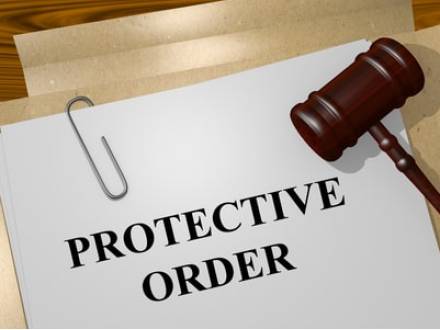1425 McHenry Road, Suite 204, Buffalo Grove, IL 60089
●Free Initial Consultation
Can I Fight an Order of Protection if My Spouse Lied?
 An order of protection in Illinois is a court order that protects one family member or household member from the actions of another. It is governed by the Illinois Domestic Violence Act. The person asking for the order of protection must credibly prove that he or she has been abused by the respondent, although the courts tend to err on the side of caution.
An order of protection in Illinois is a court order that protects one family member or household member from the actions of another. It is governed by the Illinois Domestic Violence Act. The person asking for the order of protection must credibly prove that he or she has been abused by the respondent, although the courts tend to err on the side of caution.
Protecting people from harm is, of course, the right thing to do. Unfortunately, there are times when a person is untruthful as a means of securing an order of protection. This is a concern for those who are falsely accused as well as for those who are truly in need of protection.
The person falsely accused must now hire a criminal defense attorney to defend himself or herself. If your spouse has lied to obtain an order of protection, what can you do? This is a difficult situation that can benefit from an experienced Lake Zurich, IL criminal defense attorney from The Law Offices of Matthew R. Gebhardt, P.C..
Why Would a Spouse Lie to Obtain an Order of Protection?
Unfortunately, for those who really need orders of protection, a spouse may occasionally use the system to attempt to ruin her partner's reputation or for a variety of other reasons. An order of protection could cause a person to lose their job, home, and even access to their children because of lies used as a retaliatory measure.
An angry spouse can use the legal process as a weapon to create drama in the middle of an already tense situation, such as a domestic dispute or a divorce. Some of the more common reasons a spouse may lie to obtain an order of protection include:
- To force a partner to move out of the marital home or to lose the home entirely in a divorce
- To obtain more than their fair share of marital assets during the division of assets in the divorce
- As a measure of revenge for real or perceived grievances
- To remove a parent’s rights to see their children – sometimes permanently
- To remove the partner’s right to legally own a firearm
- As a bargaining tool to get spousal support they may not really be entitled to receive
What Should You Do If Your Spouse Lies to Obtain an Order of Protection?
Never disobey a temporary order of protection before the hearing – even if the order of protection is based on lies. Your best course of action is to immediately speak to a criminal defense attorney. You can then review each item in the order and point out each false allegation. Some of the things you may need to fight false allegations of abuse include:
- Provide evidence of where you were at specific times through a work timecard, a co-worker, or another witness.
- Provide email or phone records showing you were not where your spouse claimed when an event allegedly occurred.
- Request police or hospital records to refute your spouse’s claims of physical abuse or injury.
- Consider looking through their social media accounts. If they claim they are fearful for their lives or in great distress, but social media often shows them partying with friends, this can help discredit their story.
Always do your best to remain calm and rational, even though it can be difficult in the face of false allegations. Of note for those with legitimate reasons to seek an order of protection: if you are truly fearful for your life, do not rely on a protective order; go somewhere safe and contact the police if you are in imminent danger.
Contact a Lake County, IL Criminal Defense Attorney
The best way to understand the legal issues you are up against when your spouse lies to obtain an order of protection is to speak to an Arlington Heights, IL criminal defense attorney from The Law Offices of Matthew R. Gebhardt, P.C.. Attorney Matthew Gebhardt previously worked as a prosecutor for the Cook County State’s Attorney’s Office and has broad experience in all facets of criminal law. Call 847-239-4703 to schedule your free consultation.

















